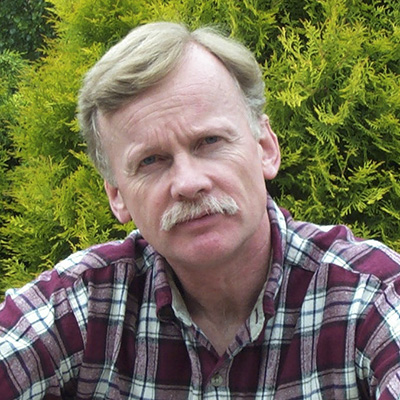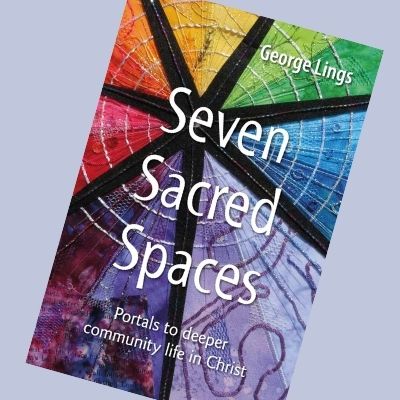Canon Dr George Lings, vice-president of BRF and author of Seven Sacred Spaces, discusses the paradox of how rules and frameworks can free us up for prayer – with seven tips to help you carve out time.
Is ‘rule’ a scary word?
See if thinking about a ruler helps. I do a bit of DIY and I use a ruler for two things. One is if I want to measure something. I learnt the hard way the wisdom of obeying the maxim ‘measure twice and cut once’. Another, often linked to the first, is to draw a straight line. Straight is such a simple idea but so hard to do unaided.
Both those uses help me live contently and gratefully with the idea of having a rule of life.
A measured way to live
I need some external measurement of my life. Something similar is going on in having a realistic job description, an insightful appraisal or a wise, critical friend.
A rule of life offers a measured and measurable framework. It operates with a set of values by which to guide and to assess how I am living. And a good rule will ask enough of me to provoke development and progress. It will enable me to measure how I am doing.
‘A rule of life offers a set of values by which to assess how I am living.’
Equally importantly, a good rule of life will not be an impossible taskmaster or a tyrant condemning us to perpetual guilt and failure. You might see the ten commandments, the sermon on the mount or Jesus’ two-fold summary of the greatest commandments as similar measures.
Make your paths straight
In all your ways submit to him,
Proverbs 3:6 (NIV)
and he will make your paths straight.
A rule will be straight. It will have that clarity and simplicity. It will also have borders. So it will be possible to say – that’s straight, but this is crooked or curved.
This is a counter-cultural way to think in a society that has become wedded to self-determined individual rights, a culture that says, ‘I draw my lines as it pleases me’; that is, ‘I do whatever I want, as long as it doesn’t obviously hurt others.’
Rhythm and rule
Aware of this pressure from society, some groups have abandoned the word ‘rule’ and chosen ‘rhythm’.
It’s a good word in itself. Rhythm helps us with pace and to keep going. I am a keen cyclist living in the hilly city of Sheffield. If I find a pedalling rhythm, I am more likely to be able to cycle uphill for miles.
But rhythm can be subjective – just doing what suits me – and it can lack the objectivity of rule. The reality is that I need to be protected against myself. I’m like one of those black balls in a game of lawn bowls – I have an inbuilt bias. Left to myself, I won’t go straight; I’ll veer off – into too much detail, into self-centredness or into being unduly self-critical. (My wife could email you the longer list!)
‘Paradoxically, the constraints of a rule enable my freedom.’
So, paradoxically, the constraints of a rule enable me to walk into freedom from myself.
Finding a rule
When it comes to finding a rule, there is no lack of sources. Seven Sacred Spaces pp. 125–128 mentions a whole range of so-called ‘new monastic’ groups, each with a distinctive rule. A growing number of Christians and those exploring the faith are joining such groups.
Another source is the Holy Habits approach. Like the new monasticism, Holy Habits has an interest in discipleship.
How do I find the right rule for me? One answer is that you find a curious combination of senses occurs. There is a sense of coming home. That’s shorthand for saying that these values and this pattern – and the people I meet who are already living them – fit me. I belong here. Yet there is also a sense of being beckoned onward and stretched. This way of living is going to ask more of me. These are values and practicalities that I need to inhabit and grow into.
Finding a framework of prayer
Writing Seven Sacred Spaces and exploring the third chapter, ‘Cell: being alone with God’, underscored for me the oft-trumpeted truth that quality time with God is foundational to being a Christian. Yet looking back over my life and knowing others’ stories, it is obvious that many struggle to make this a reality.
Being retired and being under the restrictions of the Covid-19 pandemic have removed my excuse of being too busy to pray. My wife and I have evolved our own pattern of the day. But I doubt it would easily suit a mother with children under 5, or anyone with perpetual conflicting demands on their time.
Maybe the pandemic is a prompt to question our prior busyness, frenetic 24/7 life, the squeezing out of every last ounce of efficiency. Could less be more? What might help us carve out time to pray? Factors include:
- agreement in your household that you are not to be disturbed
- a quiet, familiar unfussy space
- a comfortable chair
- a set of words that become familiar to your heart but which over time feed your spirit
- an ordered exposure to God’s word
- a pattern of prayer for others
- maybe a diary or journal to note significant moments on this spiritual journey.
Expect it to take time to form this habit. Once formed it will fortify the soul.
Walk humbly with your God
He has shown you, O mortal, what is good.
Micah 6:8 (NIV)
And what does the Lord require of you?
To act justly and to love mercy
and to walk humbly with your God.
I’m intrigued that the Bible doesn’t talk about running with God. Walking is a measured pace, even leisured and conversational.
What if a framework of prayer was like that? Walking is seldom done flat out. It seems slow, but over time it is surprising how far you get and often delightful what you see on the way because of going slowly. Pilgrimages know these values. Living a rule of life is like this. It is slow, deliberate, yet surprising and transforming.
‘Living a rule of life is slow, deliberate, yet surprising and transforming.’
A rule is not aspirational words on fridge magnet but a life to be lived.

Canon Dr George Lings has been a banker, student, vicar, writer, mentor and researcher, and for 20 years was head of the Church Army’s Research Unit. Awarded the Canterbury Cross for outstanding service to the Church of England, he now serves as a companion of Northumbria Community, vice-president of The Bible Reading Fellowship and consultant.

Seven Sacred Spaces
Too often people’s understanding of and engagement with ‘church’ is reduced to corporate worship, when it is so much more. George Lings identifies seven characteristic elements in Christian communities through the ages, which when held in balance enable a richer expression of discipleship, mission and community.
‘Used as a template to reflect on life and ministry, the seven spaces could significantly contribute to the much-needed reimagining and reformation of what discipleship and church might become in the years ahead.’
Roy Searle, a founder of the Northumbria Community

Develop whole-life discipleship with Holy Habits.
